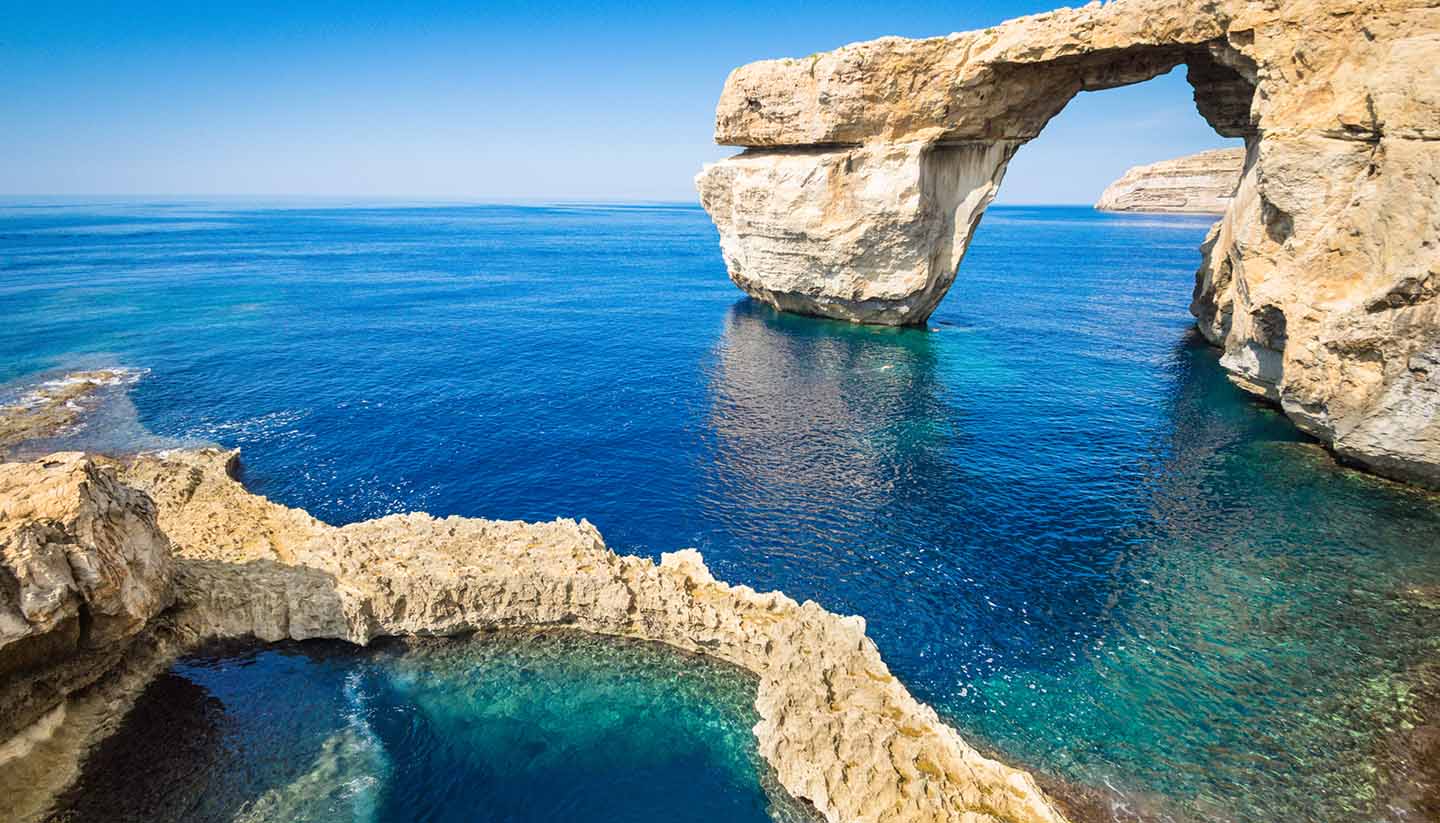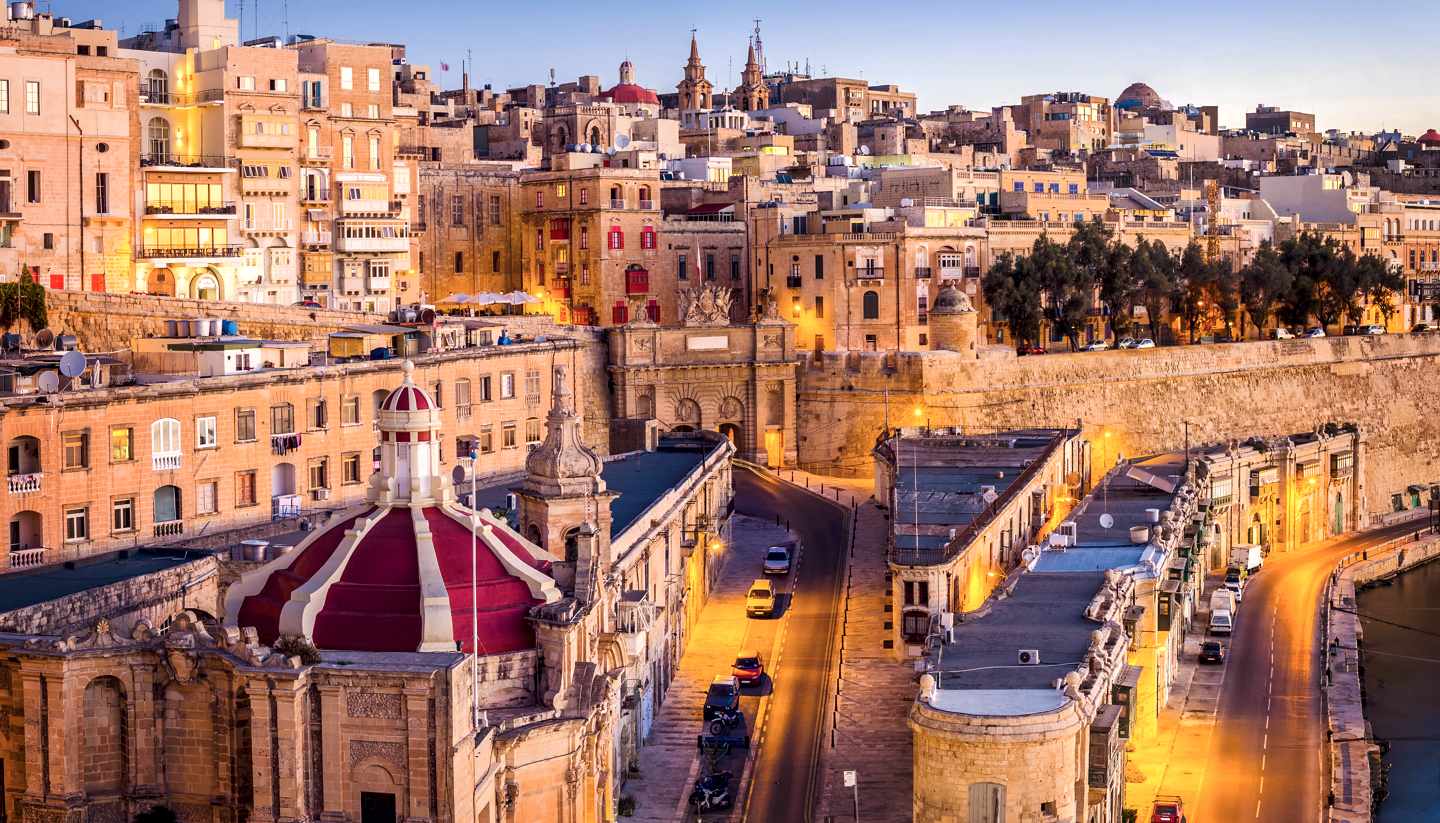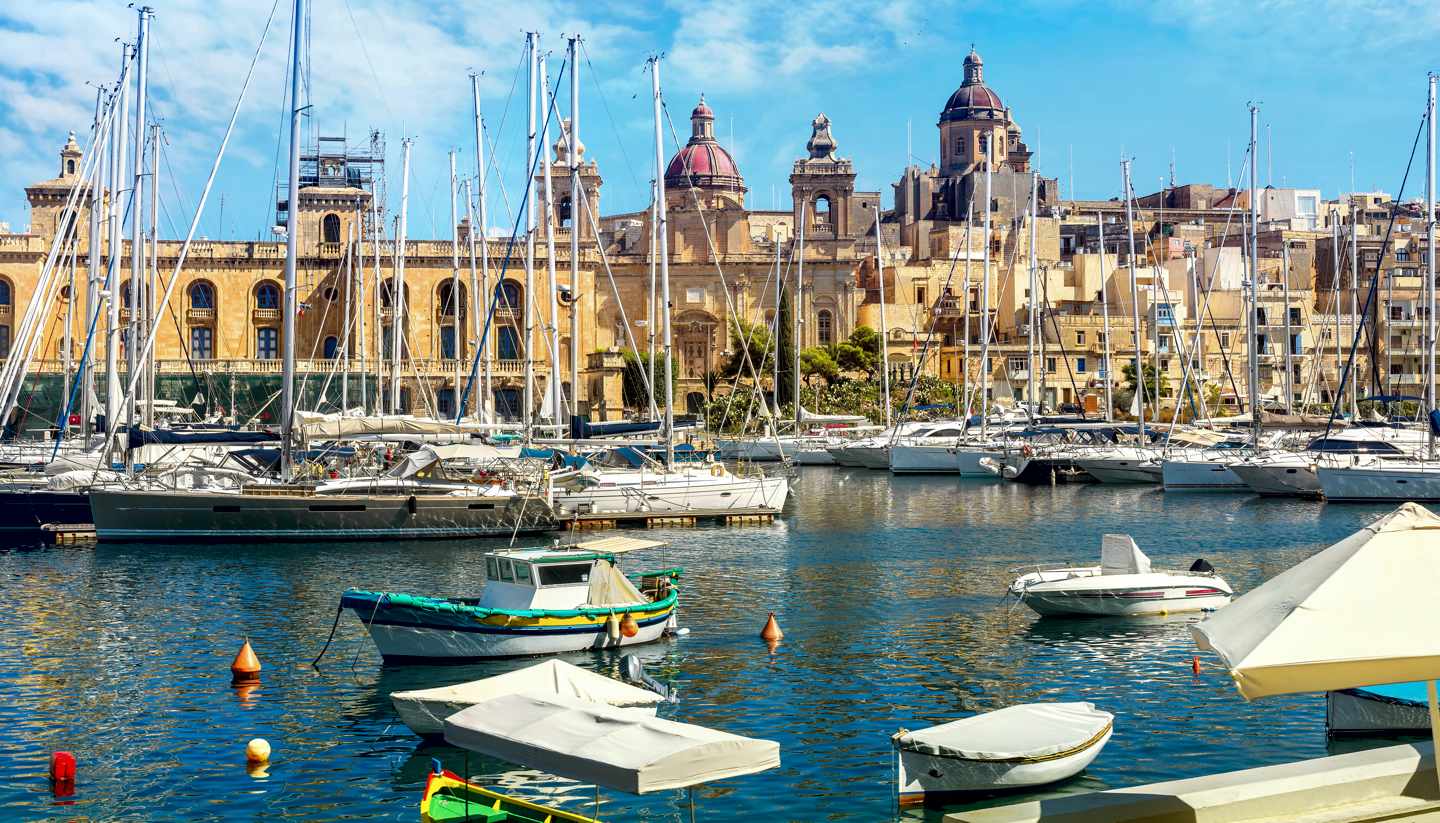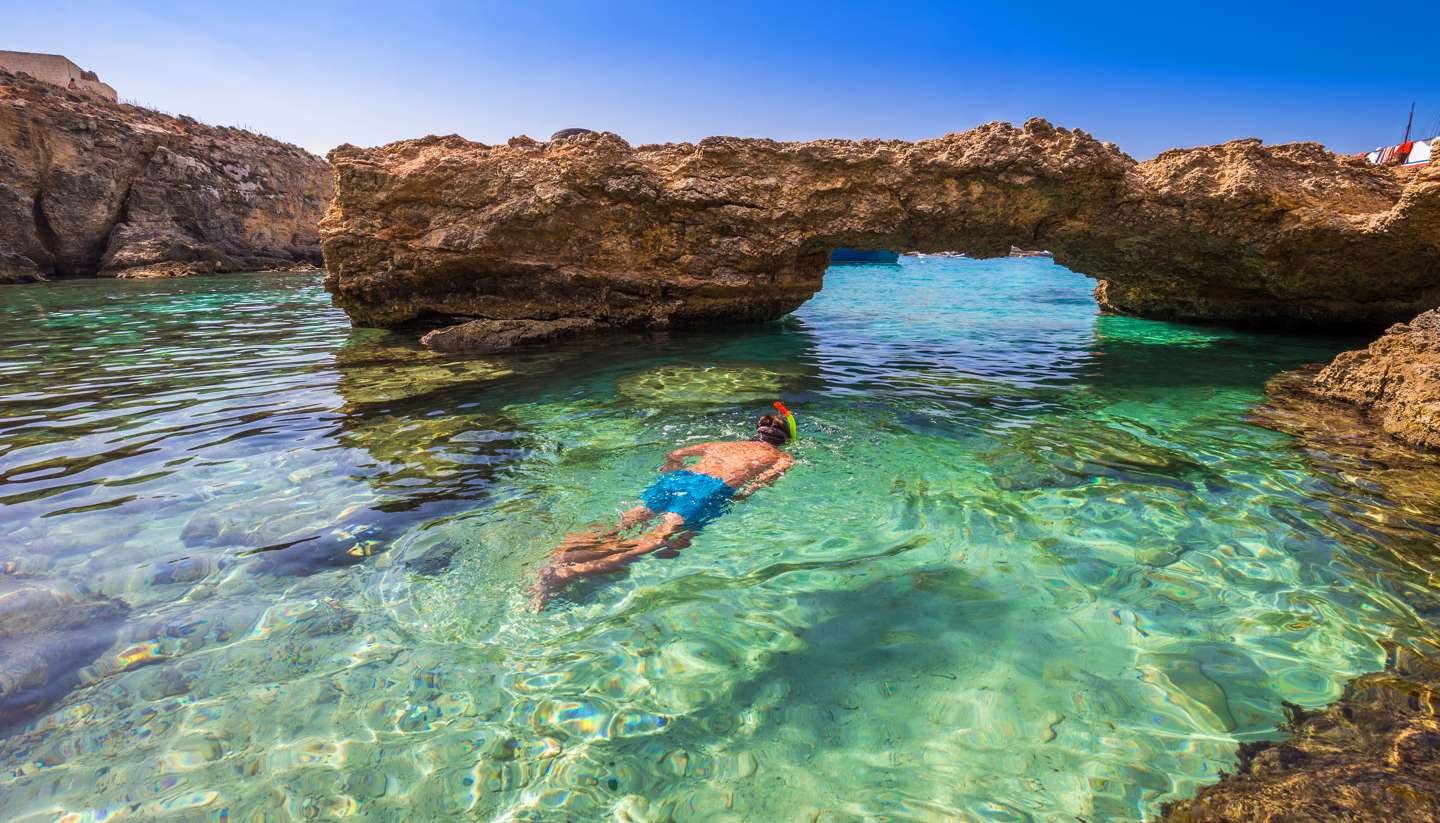Malta Visa and Passport Requirements
| Passport required | Return ticket required | Visa Required | |
|---|---|---|---|
| EU | See below | No | No |
| USA | Yes | Yes | No |
| Canadian | Yes | Yes | No |
| Australian | Yes | Yes | No |
| British | Yes | Yes | No |
Passports
EU nationals: You are not required to show a passport or national ID card when entering Malta. However, transport providers like airlines, train operators and ferry companies will require you to show your passport or ID card to prove your identity.
Non-EU nationals: To enter Malta, you must have a valid passport issued within the past ten years and with at least three months left, along with a return ticket and sufficient funds for the length of stay. Please note that the passport validity requirement may vary depending on one's nationality; hence it is recommended to travel with a passport with at least six months validity.
Malta is a Schengen country, but beware that EU members such as Cyprus and Ireland are not part of the Schengen area, so a passport or ID card is required if travelling to/from these countries.
Visas
EU nationals: You don't need a visa for Malta if the stay is less than 90 days. Those who plan to stay longer, please see the section Temporary Residence below.
Non-EU nationals: The complete list of countries and territories whose nationals can visit Malta and any other Schengen countries for up to 90 days in a 180-day period are as follows: Albania, Antigua and Barbuda, Argentina, Australia, Bahamas, Barbados, Bosnia and Herzegovina, Brazil, Brunei, Canada, Chile, Colombia, Costa Rica, Dominica, El Salvador, Georgia, Grenada, Guatemala, Honduras, Hong Kong, Israel, Japan, Kiribati, Kosovo, Macao, Malaysia, Marshal Islands, Mauritius, Mexico, Micronesia, Moldova, Montenegro, New Zealand, Nicaragua, North Macedonia, Palau, Panama, Paraguay, Peru, Saint Kitts and Nevis, Saint Lucia, Saint Vincent and the Grenadines, Samoa, Serbia, Seychelles, Singapore, Solomon Islands, South Korea, Timor-Leste, Tonga, Trinidad and Tobago, Tuvalu, Ukraine, United Arab Emirates, United Kingdom, United States of America, Uruguay, Vanuatu and Venezuela.
• Hong Kong and Macao: holders of SAR passports do not need a visa.
• Taiwan: holders of passports issued by Taiwan which include an identity card number do not need a visa.
• Serbia: holders of biometric passports do not need a visa, excluding holders of passports issued by the Serbian Coordination Directorate.
• Vanuatu: holders of passports issued on or after 25 May 2015 do not need a visa at least until 5 February 2025.
• Nationals from micro-states within an EU country (Andorra, Monaco, San Marino and Vatican City) also do not need a visa.
For nationals from countries not listed here, please contact the nearest embassy to check the visa requirements for Malta.
Types and Cost
• €90 for those who are 12 years old and above.
• €45 for children aged six to 11.
• Free for children below six.
Visa fees are waived for the following applicants:
• School pupils, students, postgraduate students and accompanying teachers who undertake stays for the purpose of study or educational training.
• Researchers from third countries travelling for the purpose of carrying out scientific research.
• Representatives of non-profit organisations aged 25 years or less participating in seminars, conferences, sports, cultural or educational events organised by non-profit organisations.
• Family members of EU/EEA (European Economic Area) citizens, falling under Directive 2004/38.
Validity
Up to 90 days in any 180-day period.
Transit
Citizens of some countries need an airport transit visa when transiting through international parts of any airports within the Schengen countries, whereas citizens of certain countries are only required a transit visa for some of the Schengen countries. If you are not from a Schengen visa exempt country, please check with a consulate of Malta near you.
Application to
Contact the embassy, high commission or consulate.
Schengen Visas
Malta is a Schengen country, so the Schengen visa scheme applies.
Temporary residence
EU nationals: Will a residence permit in Malta for more than 90 days, provided that you have sufficient financial resources to support yourself and your family members (if applicable) without relying on public funds, among other conditions.
Non-EU nationals: Will need a visa to stay in Malta for more than 90 days.
Working days
Schengen visa applications usually take 15 calendar days, but sometimes up to 45 days. Be mindful of the national holidays in Malta as they may affect the processing time. It is recommended to submit applications at least four weeks prior to departure.
Sufficient Funds
Schengen visa applicants must be able to provide proof of funds to cover their stay.
Extension of stay
Schengen visa holders with a visa valid for less than 90 days can only extend their visas in exceptional circumstances, such as force majeure or for humanitarian reasons.
Entry with pets
If you and your pet are from an EU country:
• An ISO identification with a 15-digit microchip, or clearly readable tattoo.
• The animal must be identified before the rabies vaccination. A rabies vaccine at 12 weeks of age. Also, 21 days have to pass from the date of the rabies vaccination.
• A valid EU passport.
• Dogs must have tapeworm treatment between 24 to 120 hours prior to entering Malta. But dogs moving directly between Norway, Finland, Ireland, or the United Kingdom to Malta are exempted from the treatment against the tapeworm Echinococcus multilocularis.
• Submit an online notification to nldmalta.gov.mt/MaltaPetArrivals.
If you and your pet are from a country outside of the EU:
• An ISO identification with a 15-digit microchip, or clearly readable tattoo.
• The animal must be identified before the rabies vaccination. A rabies vaccine at 12 weeks of age - it will also need a blood test if you are travelling from an 'unlisted country' listed below. The test must be carried out on a sample collected by an authorised veterinarian at least 30 days after the date of vaccination and not less than three months before the date of movement, the test must measure a level of neutralising antibody to rabies virus in serum equal to or greater than 0,5 IU/ml, the test must be performed in an approved laboratory.
• An Official Health Certificate issued by the country of departure either 'listed' or 'unlisted country'.
• Dogs must have tapeworm treatment between 24 to 120 hours prior to entering Malta.
• Submit an online notification to https://nldmalta.gov.mt/MaltaPetArrivals.
The listed countries are Antigua and Barbuda, Argentina, Aruba, Ascension Island, Australia, Bahrain, Barbados, Belarus, Bermuda, BES Islands (Bonaire, Saint Eustatius and Saba), Bosnia-Herzegovina, British Virgin Islands, Canada, Cayman Islands, Chile, Curaçao, Falkland Islands, Fiji, French Polynesia, Hong Kong, Japan, Malaysia, Mauritius, Mexico, Montserrat, New Caledonia, New Zealand, Russian Federation, Saint Maarten, Singapore, St Helena, St Kitts and Nevis, St Lucia, St Pierre and Miquelon, St Vincent and The Grenadines, Taiwan, The former Yugoslav Republic of Macedonia, Trinidad and Tobago, United Arab Emirates, USA (includes American Samoa, Guam, Northern Mariana Islands, Puerto Rico and the US Virgin Islands), Vanuatu, Wallis and Futuna.
Unlisted countries refer to countries not mentioned in the list above.
This page reflects our understanding of current rules for the most common types of travel to the said country. However, please note that each authority sets and forces entry rules, hence we strongly recommend that you verify critical information with the relevant embassy before travel.
Embassies and tourist offices
British High Commission in Malta
Telephone: +356 2323 0000
Website: https://www.gov.uk/world/organisations/british-high-commission-malta
Address: Ta' Xbiex, Whitehall Mansions, Ta' Xbiex Seafront, Valletta, XBX 1026,
Opening times:
Mon, Tue, Thu, Fri 0900-1300
Malta High Commission in the UK
Telephone: (020) 7292 4800.
Website: http://www.foreign.gov.mt
Address: 36-38 Piccadilly, Malta House, London, W1J OLE,
Opening times:
Mon-Fri 0930-1230 and 1430-1600.
Embassy of Malta in the USA
Telephone: (202) 462 3611.
Website: http://www.foreign.gov.mt
Address: , 2017 Connecticut Avenue NW, Washington, DC 20008,
Opening times:
Mon-Fri 0900-1700.




